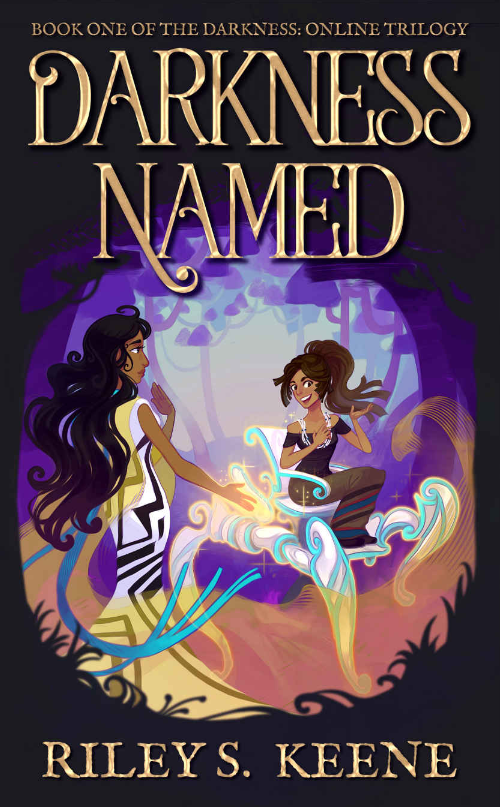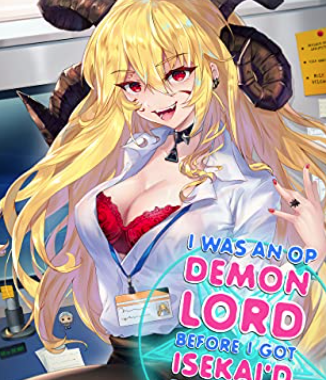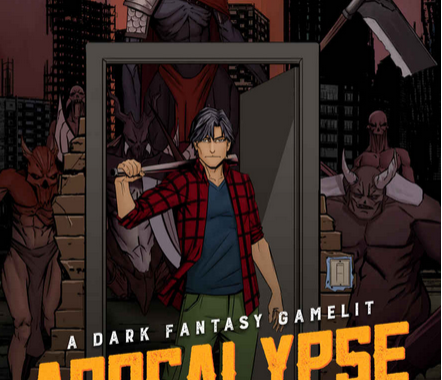
Review – Darkness Named
Tanisha Richards is a wheel-chair bound bisexual Native American woman with hunting experience and a history of playing the mobile game dARkness: Online, when a fateful encounter with a rouge Terms of Service update finds her sucked into the game, or at least a facsimile of it as created by the learning AI Otekah. Can she used the game’s rules to her advantage and escape this world? At the end of book one, we still don’t know. This is a Trilogy, and one I’ll likely finish at some point. What I appreciate it most about this story was how it made me question some biases I held as I critically read the book itself.
Disclaimer: the above advertisement is an affiliate link. Making a purchase from this link may financially benefit the website.
This book has a solid start and an interesting set-up. The strongest part of this book is it’s main character, and that’s going to be the biggest caveat to this book: if you don’t like the character, if you find it hard to see the world from her eyes, it’s going to be hard to enjoy this book. As such, it’s not surprising I found myself putting more thought and analysis into the character herself than the rest of the work as a whole, which I found surprisingly average despite a few quirks.
The authors (Riley S. Keene is a pseudonym for a married writer duo) seemed to grab as many checkboxes as possible when writing this character as diverse, and my initial thoughts weren’t very kind to that. The main character is wheelchair-bound; this is part and parcel to her unique struggles and absolutely integral to the story. She’s a woman, which colors things a bit. She mentions passingly that she’s bisexual when referring to a man who interviewed her that she wasn’t interested in; this doesn’t appear to get any mention in the rest of the story. Her native heritage is very briefly touched upon in the real world, and isn’t directly referenced again although I’d make the argument it has a positive effect on how she handles a run-in with the games Stick People (which is directly referencing the Stick People/Stick Indian legends many Northwest tribes tell.) She is also a bit of a hunter, which in a twist of irony actually works against her in the game world she’s sucked into because the False Lands use game mechanics for everything which often defies real world logic.
My initial response to this character was “does it matter that she’s bisexual? Is this really Native American, or was this just an appropriated title used to up sales with token identifiers? In some context, I feel there’s discussion to be had there, but the realization I had was essentially “A character can be bisexual without jumping every human within range. A character can be born native and not need to speak to the spirits or scalp every person they come across.” It was a surprising bias I hadn’t thought to consider (although obviously for writing purposes I’m exaggerating it here). That said, I hesitate to claim that the character, as written in the first novel at least, really offers any solid representation of anyone outside a wheelchair bound individual. So take that as you will.
The character makes a lot of poor decisions, especially early on, and I understand why she made those decisions – greed is universal, loss of sanity affects us all differently, and applying real world logic to a game that outright punishes this can be frustrating. I did find myself wincing at the character more than cheering her on though. It’s clear she’s a kind-hearted, goal oriented individual, but then she is put into a situation where she only has herself to survive and the whole novel feels like her very worst enemy isn’t even the game and its denizens but herself. This is a bit of an issue, since once Tanisha finds herself in the game world, she spends most of that time travelling by herself, only befriending a helpful creature called a Mustelan (which is a strange name, because I thought it would be a reference to a type of weasel but the creature is a small furry humanoid with a tail) towards the last quarter of the book.
The story itself has strong survival elements that I personally appreciate. In real life, Tanisha is a top-tier player of this mobile game that was created ostensibly to encourage people to explore and with a learning AI to help identify potential trials. A series of events finds her brought into the game proper by Otekah, an AI who wants to understand the real world better and does so by kidnapping players and forcing them to survive. Since her wheel chair could not be brought into the real world, the game creates an interesting device which has four spider-like legs and requires a crafted bio-fuel to continuously move, and is controlled with both hands on the device. A goal is set – should Tanisha (known in this game as Koest) make it to Otekah’s castle, she has a chance of making it home. This is made somewhat difficult by the fact that Koest starts over at level one, and has to balance not only her hit points but her stability (sanity), hunger, and stamina… and the way to do these things isn’t the same as they were done when playing the game proper. As an example, one can’t just log out of the game at night and log in towards the morning to fresh stamina and better stability.
It becomes apparent REALLY fast that Koest isn’t going to be able to just picnic her way to this castle, so in an interesting twist she steadily builds a camp of sorts as a base of operations. This is the focus on a lot of book one, and in a vacuum it works well enough. It does come at the cost of stalling what the perceived goal was, of getting to the castle and escaping. That’s going to be an issue for some, although I will note that the main character addresses this to herself directly about 80% in, feeling like this “game” is essentially doing things specifically to keep her “sucked in” and that this is a danger in its own right, one she doesn’t properly understand despite believing the AI is responsible. It’s a pivotal moment of self-reflection, but this doesn’t change the flow of the story itself. It takes a fight with an oversized wolverine that destroys a solid amount of the camp to get things going again… and that catastrophic loss is where book one ends.
This creates an interesting situation where I want to see how this story unfolds, but I also feel like the story ends not on a real cliffhanger but on a “bad end” to a game I’m going to have to “new game plus” as it were, which is more bitter than sweet. Still, as a survival story with some gamified twists it has unique merit, and the main character being wheelchair bound creates very interesting dynamics and challenges readers are unlikely to see anywhere else. The main character’s struggles are the focal point, and this means that a reader’s ability to enjoy this work is going to hinge on how they feel about the character herself, and that’s not a judgement call I personally can make.



